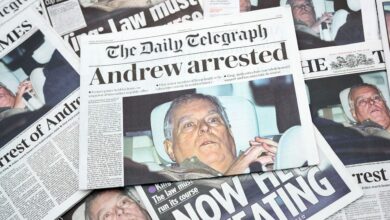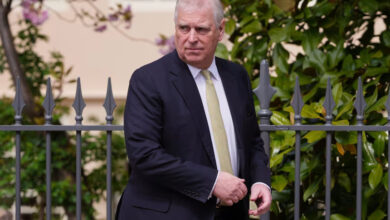
LONDON (Reuters) – Former British leader Tony Blair said there was a 50-50 chance of another Brexit referendum as Prime Minister Theresa May will be unlikely to secure a parliamentary majority for any divorce deal.
Less than six months before Britain leaves the European Union, there is little clarity about how post-Brexit trade between the EU and the world’s fifth largest economy will function.
If May can strike a deal with the EU, her minority government then has to get it approved by a deeply-divided parliament.
“Whatever Brexit is on offer today is going to result in significant economic harm,” Blair, former head of the opposition Labour Party and prime minister from 1997 to 2007, told Reuters. “I think the odds are now 50 percent that you will get another (referendum) vote.”
“I still believe it is possible that Brexit is stopped,” he said. “There is no majority in parliament for any proposition that the prime minister brings back.”
Both opponents and supporters of Brexit agree that the divorce is Britain’s most significant political and economic move since World War Two, though they cast vastly different futures for the $2.9 trillion UK economy and the world’s biggest trading bloc.
Leaving the European Union was once far-fetched: Less than two decades ago, British leaders such as Blair were arguing about when to join the euro, and talk of an EU exit was the reserve of fringe politicians.
But the euro zone crisis, fears in Britain about immigration and miscalculations by former Prime Minister David Cameron prompted Britons to vote 52 to 48 percent for Brexit in a June 2016 referendum.
A new vote, Blair said, could ask whether voters wanted to exit without a deal or stay in a reformed EU and offer new membership terms. He said EU leaders would be willing to reform the bloc.
Brexit reverse gear?
Blair has repeatedly called for reversing Brexit, echoing other critics, including French President Emmanuel Macron, who have suggested Britain could still change its mind.
Recent opinion polls indicate a slight move toward support for staying in the EU.
But May has repeatedly said there will be no new referendum.
Blair said that if Brexit did happen, economic dislocation would force Britain to deregulate further to attract foreign investors.
Brexiteers anticipate some short-term economic pain but say Britain will then thrive if cut loose from what they see as a doomed experiment in German-dominated unity and excessive debt-funded welfare spending.
Blair said that if the UK exited the EU and then socialist Labour Party leader Jeremy Corbyn won power, the country would face a “truly damaging and challenging situation”.
“This is the problem with the policies of both major parties: they seem to think you can do Brexit and then engage in a whole lot of social legislation to make capitalism fairer and more equal and so on,” Blair said.
“They have got to wake up to the fact that if you do Brexit your number-one priority is going to be keeping this place as an attractive place for investors to come.”
He said European regulators would not want the center of European finance – currently London – to be outside their orbit.
“Why give ourselves this problem in a field of the global economy where we are globally preeminent?” Blair said, adding that the government had cast aside the interests of the service sector.
Reporting by Guy Faulconbridge and Andrew MacAskill; Editing by Gareth Jones and John Stonestreet.




